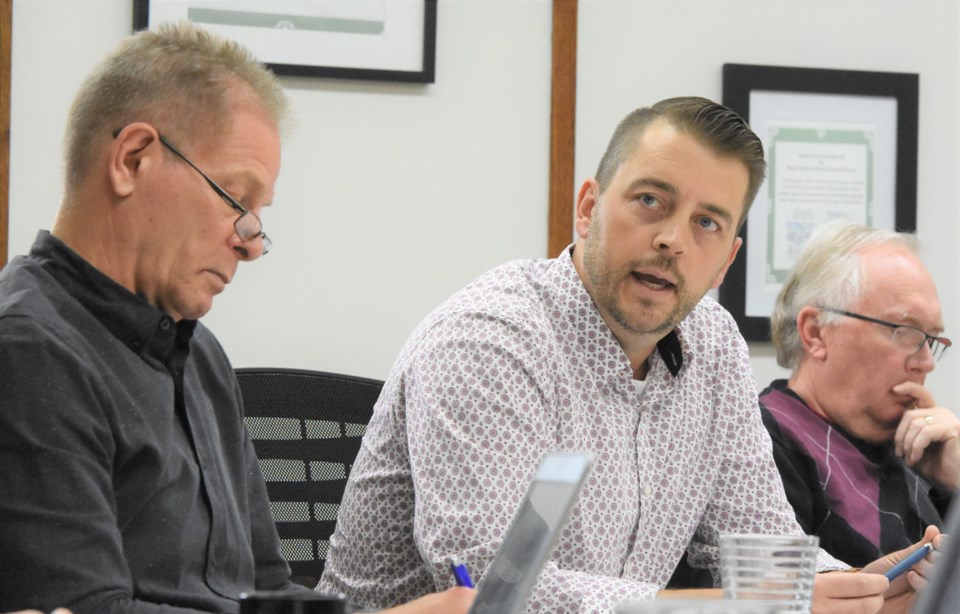While the public might think that the biggest threat to education is underfunding, one school board trustee actually believes the biggest threat is the growing influence of mediocrity in classrooms.
Parents with concerns are often dismissed as old-fashioned or criticized for relying on anecdotal evidence, Brian Swanson, a trustee with the Prairie South School Division (PSSD), said during the recent board meeting. However, he attended a school community council meeting where parents were concerned that there seemed to be no firm deadline for when students had to submit their assignments.
Based on his “old-fashioned, anecdotally-based, non-researched-based opinion,” he thought this mediocrity was a symptom of what plagued the education system, especially in relation to outcome-based education and reporting (OBE/R).
“It’s not an easy battle to fight … ,” he said after three Moose Jaw mothers expressed their concerns about OBE/R’s use in the school division. “We have abandoned excellence in education. The solution is with parents. It’s not going to be around this table; it’s not going to be in the offices here. It’s going to be with parents.”
Among the documents provided to trustees about OBE/R was a letter from the Ministry of Education in response to one of the mother’s concerns about reporting student achievement with letters instead of percentages. The document indicated the decision to implement OBE/R is up to school divisions and not the province.
Outcome-based education has been used in PSSD for more than 10 years, Swanson pointed out. A report about this practice did not come to the board before it was implemented — a fact confirmed by another trustee — which is critical to understand.
It is true that the solution could be with parents, but it’s also going to be with university professors, said Jan Nelson, who, along with Cheryl Searle and Lindsay Newsham, spoke to the board. She pointed out the University of Saskatchewan announced a few years ago that students from Saskatchewan were doing much worse compared to out-of-province students. Professors apparently had to adjust grades to ensure students passed.
Nelson agreed with Swanson’s point that giving students too much time to hand in assignments increases mediocrity. Searle thought that students should have to ask for extensions instead of being given them. They should also have to prove they deserve a second chance to re-write a test.
The goal to make school reporting more meaningful was one recommendation that came out of a recent education meeting involving Saskatchewan school divisions, said trustee Shawn Davidson. That concern was heard all around the table during that meeting.
“Our job as the elected … is to bring that voice of parents and the public to publicly funded education,” he said, adding the three mothers did the right thing by putting together a well-researched presentation about OBE.
Trustee Tim McLeod wondered if, instead of a four-point scale using letters, the mothers wanted a 12-point scale that included pluses and minuses to indicate more effectively how students are doing.
A quick fix would be to adjust the scale indicators for the rest of the year, said Nelson. But real change would involve introducing a standards-based curriculum using standardized assessments. This would help drive learning and help parents understand what their kids know or don’t know.
Change either needs to happen with grading, or teachers need to provide better comments and feedback on report cards, Searle said. This is particularly important since some students receive a letter grade indicating they are passing, but are later told they are below grade level in some required skills.
Moose Jaw trustee Jan Radwanski suggested that the three women should attempt to become a trustee during this fall’s school board elections. They could bring their informed perspective to an issue that won’t disappear anytime soon.




